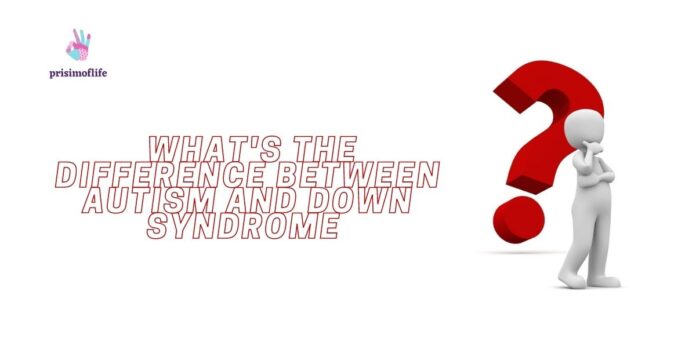
What’s the Difference Between Autism and Down Syndrome? This is a question generally asked by people dealing with autistic children. The direct answer to this question is there are many similarities between autism and Down syndrome. However, there are also some critical differences between the two conditions regarding treatment, care, and prognosis. If you’re curious about the similarities and differences between autism and Down syndrome, look no further than this in-depth guide on what the difference between autism and Down syndrome is.
Autism and Down syndrome are both neurodevelopmental disorders. Still, some key differences between the two conditions may help you determine whether your child has autism or Down syndrome. Read on to learn more about the similarities and differences between autism and Down syndrome, and decide whether you think your child has one of these conditions.
Both are Genetic Disorders
One of autism’s best-known traits is its broad definition; it isn’t defined by a specific set of symptoms but rather by how they are displayed. In other words, each person with autism has their own unique combination of strengths and weaknesses (which are affected by a myriad of factors). For example, someone with high-functioning autism may be proficient in mathematics while being unable to make small talk. Someone else may be extremely good at sports but can’t care for themselves daily.
Both are Lifelong Conditions
It’s important to remember that Autism and Down Syndrome are lifelong conditions. This isn’t meant to scare you but rather help you understand what you can expect from your child, depending on their situation. For example, both children with Autism and children with Down Syndrome tend to be very affectionate, making them wonderful friends to their families.
However, Autism is more commonly associated with social challenges. In addition, children with down syndrome sometimes have slightly different physical characteristics than typical kids (due to developmental delays). Also, while there is no cure for either condition—at least not yet—research has led to improvements in quality of life for individuals diagnosed with either condition.
How it Impacts Brain Development
While it’s true that both Autism and Down Syndrome impact brain development, they do so in different ways. While children with Autism often have delayed speech, those with Down Syndrome typically don’t. In addition, children with Autism are prone to repetitive movements or behaviors, while children with Down Syndrome might not be.
As they grow older, children with Down Syndrome tend to be less socially withdrawn than those with Autism. Ultimately, parents should work closely with their child’s healthcare providers to determine what is going on—and how best to treat it—with each case of ASD vs. DS.
Symptoms
Children with Autism can seem to lack empathy, exhibit a lack of social skills, or be unable to develop bonds with other people. However, these symptoms are also present in children with Down Syndrome. Children with either condition may have physical features distinct from other kids their age – for example, a child who has both conditions might have a smaller-than-average head circumference and a wide mouth. In fact, according to researchers at Stanford University School of Medicine, half of all children with Down Syndrome also meet some of the criteria for Autism – although they would not be considered autistic due to their intellectual impairment.
Life expectancy in Autism and Down Syndrome
While both Autism and Down Syndrome are lifelong conditions, people with down syndrome have a significantly shorter life expectancy than people with autism. For example, studies have shown that men with Down Syndrome live an average of 50 years old, while women live at 60 years old. In contrast, life expectancy for men with autism is around 60 years old, while it’s 70 years old for women with autism.
The reason behind these disparities isn’t clear; some researchers hypothesize that it has to do with differences in disability levels among individuals who have either condition. Regardless of why people living with Down Syndrome tend to die younger than those living with autism, it’s important to consider what will happen to your loved one as they get older.
Treatment Options for Autism and Down Syndrome
While there is no cure for either Autism or Down Syndrome, both conditions can be treated and managed. In addition, with proper therapy sessions, it is often possible to improve some symptoms in individuals with either condition. For example, speech or language therapists can help children with autism develop their communication skills.
Likewise, physical therapists may assist individuals with Down Syndrome to gain mobility and strength. Finally, in extreme cases where an individual can’t live independently, residential facilities exist that provide care on a 24-hour basis.
Conclusion
Thus, both Autism and Down syndrome are considered to be developmental disabilities, but they do differ in terms of their causes, symptoms, and treatments.
Suggested Readings:










